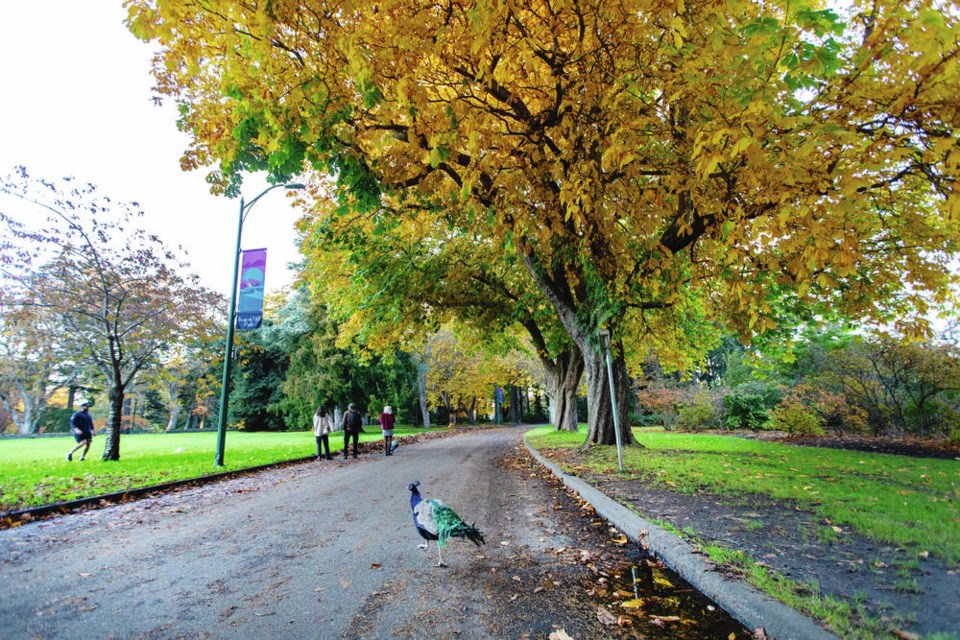Victoria council will consider a plan next week to offer shelter or housing to the more than 250 people without homes currently living in city parks and bring an end to around-the-clock camping by March 31, 2021.
Mayor Lisa Helps and Coun. Jeremy Loveday are proposing a suite of measures aimed at moving people indoors over the winter and alleviating pressure on the city’s limited parkland and green space.
“Setting a date will give us all a goal to work toward, will continue council’s balanced approach and will signal that by next spring the parks will once again be available for everyone to use — including those who need to shelter overnight outside,” the motion states.
Council eased a prohibition on around-the-clock camping earlier this year when the COVID-19 outbreak forced homeless shelters to close or reduce the number of beds to meet physical-distancing rules. With no place else to go, people began setting up shelters on boulevards and in city parks.
City staff estimate there are 250 to 270 such shelters across the city.
Council previously said it would bring an end to 24-7 camping once the provincial government lifts the state of emergency that’s in place due to the pandemic.
But Loveday said in an interview Friday that it’s unclear how long that will take and that waiting indefinitely doesn’t help the people living in parks get the housing they need. A “more appropriate and compassionate approach,” he said, would be to set a deadline and make sure that everyone is given access to housing before 24-7 camping ends.
If council approves the plan, staff will bring forward amendments to the parks bylaw that will bring a close to all-day camping on March 31. Final adoption, however, will hinge on everyone in the parks being offered adequate housing or shelter space prior to the deadline.
“To achieve this, we are going to need all hands on deck in terms of support from all levels of government, and in the community,” Loveday said. “And I am hopeful that we can coalesce around this goal of ending chronic homelessness in the city of Victoria, and being driven to action by the idea that everyone deserves safe adequate and appropriate housing, and that together we can make that happen.”
Helps and Loveday propose a number of ways to reach that goal, including:
• Directing city staff to work with private landowners or use city land to build temporary clusters of tiny homes with no more than 30 units, beginning with a pilot project next year.
• Pressing the provincial government to begin building modular housing on two recently purchased sites on Yates Street and Meares Street.
- Using some of the $6.5 million in COVID-19 relief money from the federal and provincial governments to move people indoors
- Urging the province to open a “small portion” of Oak Bay Lodge for people 55 and older who have no home.
Seniors were moved from Oak Bay Lodge to a new facility over the summer and the Capital Regional District recently voted to let the building sit vacant rather use it as a homeless shelter.
But Helps and Loveday say it’s “unconscionable” to leave the lodge empty when there are seniors living in tents in the middle of a pandemic.
“We understand that the building is in poor condition,” the motion states. “We are certain that the condition of the building is better than a tent for a 70-year-old.”
Helps said in an interview that the motion dovetails with efforts by the Community Wellness Alliance of government, business and social service officials to move 200 people indoors by the end of the year.
The alliance hopes to achieve that goal by using 110 rent subsidies provided by B.C. Housing and Island Health, 24 treatment beds at Our Place’s Therapeutic Recovery Community and 60 affordable-housing units slated to open this month in Langford and View Royal.
If successful, that will go a long way to housing people currently in the parks, but more work will need to be done, Helps said.
“The idea is to offer everyone somewhere safe inside so that there is no displacement,” she said.
lkines@timescolonist.com



